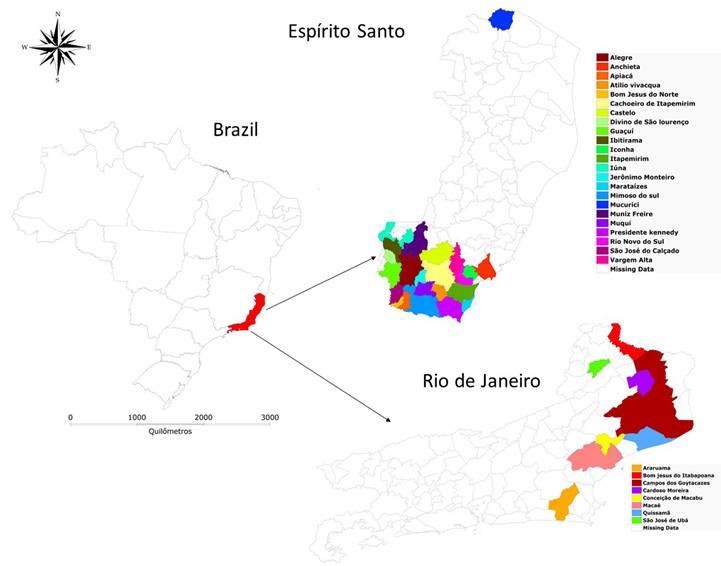ABSTRACT:
Bovine fasciolosis is a neglected parasitic zoonosis that causes economic losses to beef production chains due to liver condemnation at abattoirs. Despite the characterization of Bovine fasciolosis in several areas of Brazil, an update on its prevalence in the states of Rio de Janeiro and Espirito Santo is lacking. Thus, fasciolosis prevalence from 2018 to 2021 is presented here according to cattle origin (municipalities of both states). In addition, the associated economic impact on an abbatoir was analyzed through liver condemnation of bovines from both states. The prevalence of fasciolosis in the state of Espírito Santo (10.4%) was significantly higher than Rio de Janeiro (3.6%) (P < 0.01), and resulted in an economic loss of US$12,678.60 for the abattoir. The following municipalities located in the state of Espírito Santo presented prevalences above the mean (10.3%) established in the study: Vargem Alta, Anchieta, Cachoeiro do Itapemirim, Castelo, Atilio Vivacqua, Apiacá and Ibitirama. Thus, majority of these municipalities are considered high-risk areas. Although, there is an aparrent reduction of fasciolosis prevalence, it continues to be a cause of economic losses in abattoirs especially in the state of Espírito Santo. Accordingly, prophylactic measures must still be adopted in cattle farms.
Key words: Fasciola hepatica; liver; meat inspection; parasitology

 Prevalence of bovine fascioliasis and economic losses in an abattoir located in the state of Espírito Santo, Brazil
Prevalence of bovine fascioliasis and economic losses in an abattoir located in the state of Espírito Santo, Brazil Thumbnail
Thumbnail
 Thumbnail
Thumbnail

